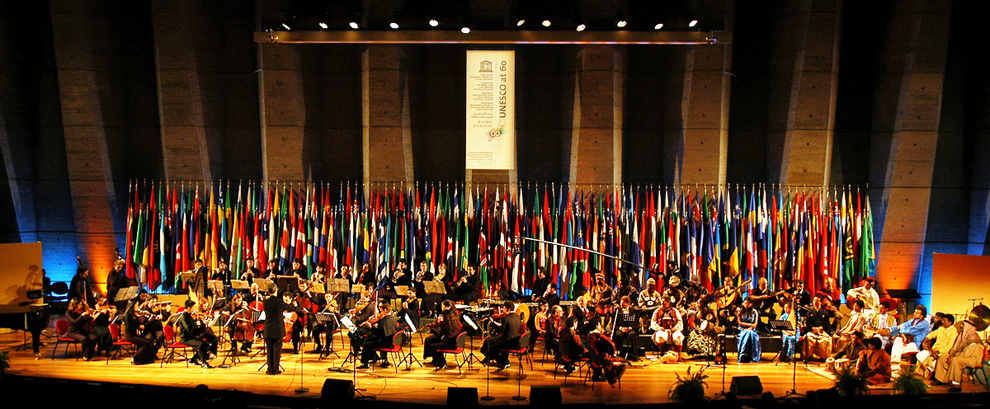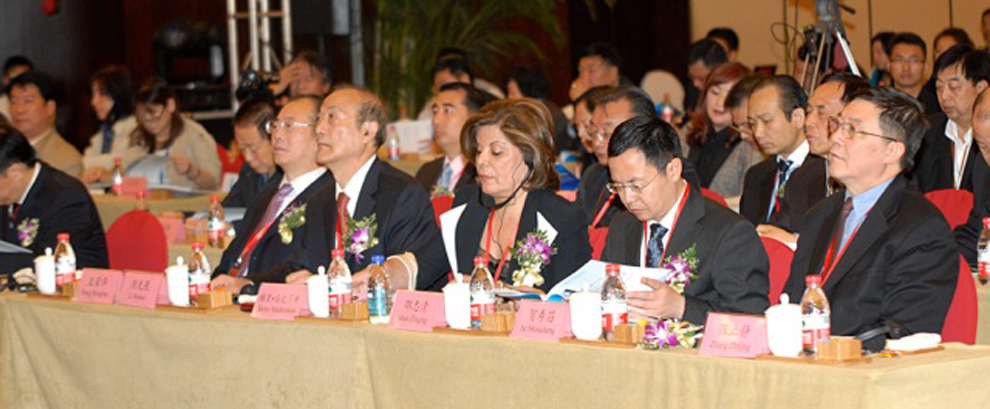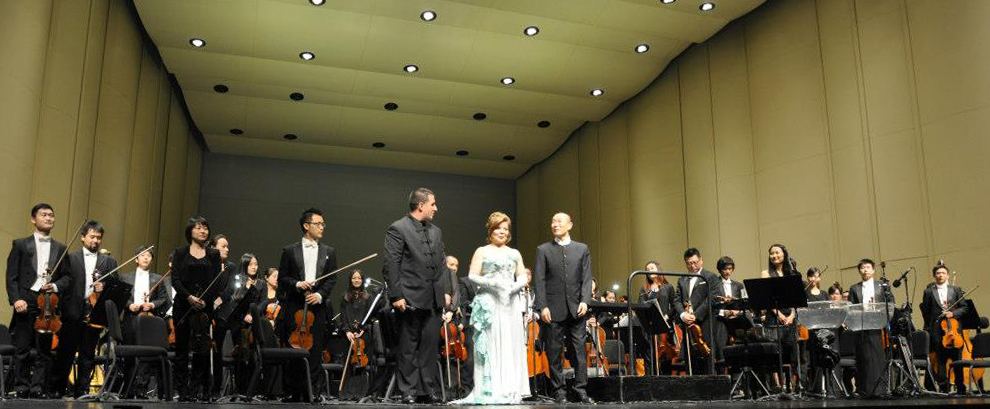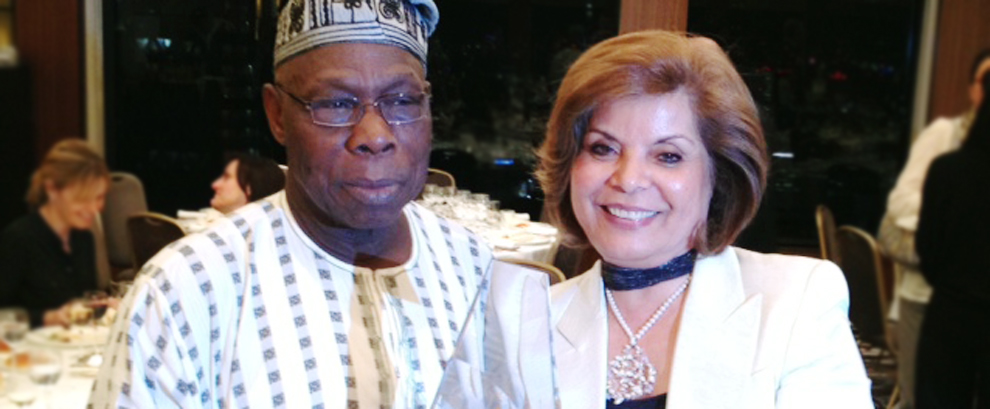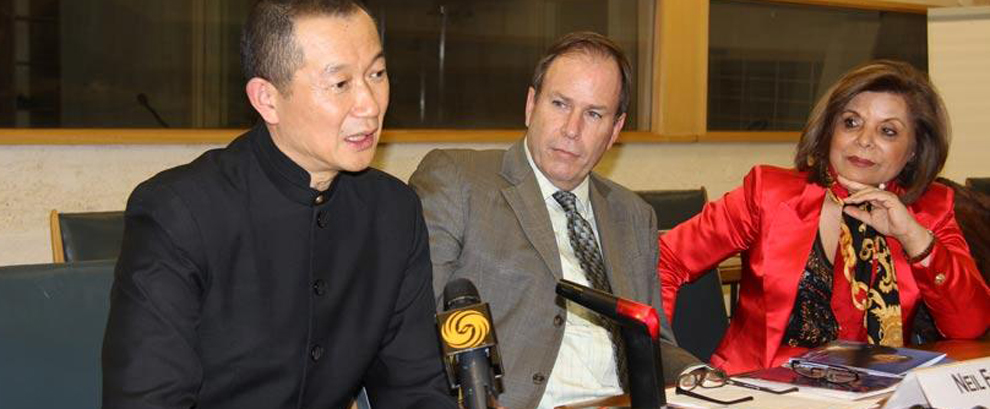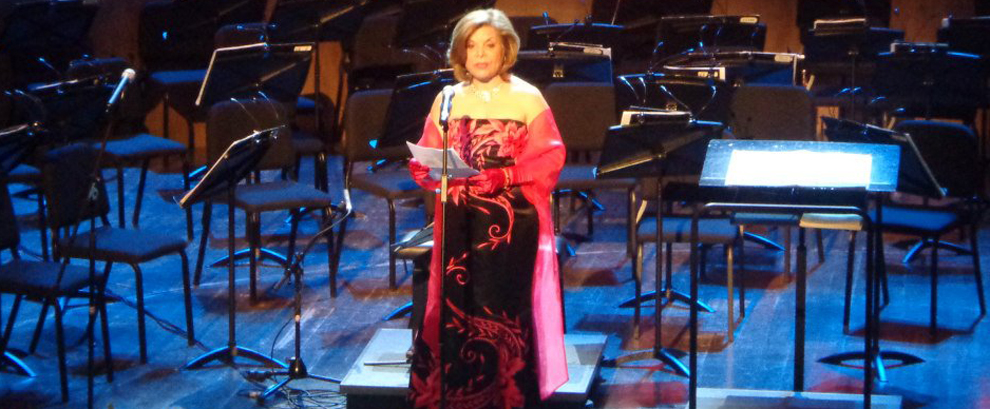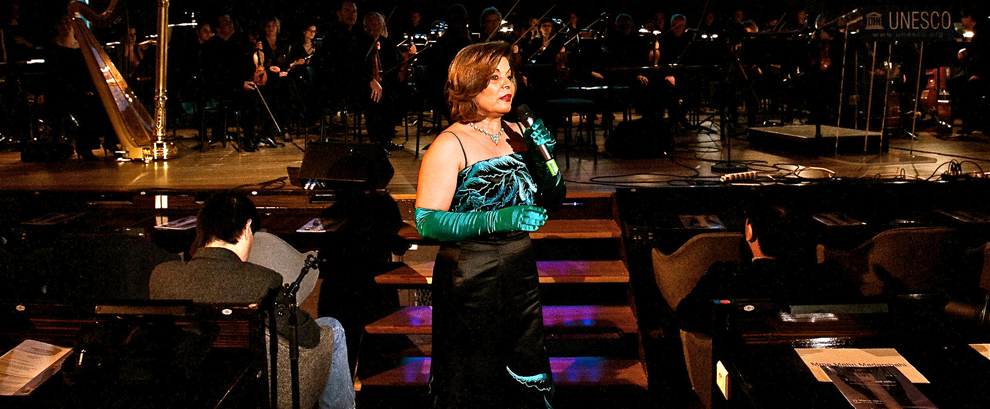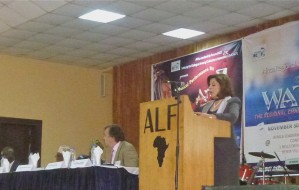
WATER MANAGEMENT IN AFRICA
November 30, 2011
Lagos, Africa
Presented by Mehri Madarshahi
Mr President,
Honorable Ministers
Excellencies
Ladies and Gentlemen:
Good morning and welcome to the first of the series of meetings planned by the Association Melody for Dialogue among Civilizations on the challenge of sustainable water management for present and future. I am privileged to cooperate in this challenging event with the ALF led by its Chairman President Olusegun Obasanjo and Mr Ayo Aderinwale its executive Director. I am also glad to acknowledge the support extended by UNESCO for this endeavor.
At the beginning of the 21st century, the Earth- with its diverse and abundant life forms- including 7 billion people is facing a serious water crisis. Although water is the widely occurring substance on earth, its surface contains only 2.55 per cent fresh water, Some two-third of this water is trapped in the glaciers with permanent snow cover and partly taken up by plants and animals, pollutions, agriculture and natural evaporations The consequence is that water for our use is becoming scarce and all signs are indicative of the fact that this situation is being exasperated and will continue to do so unless corrective actions are taken. This crisis is one of water governance essentially caused by the way in which we mis- manage water.
In recent years, water use has grown at more than twice the rate of the population and it has become an increasingly crucial issue facing many cities around the world. Rapid population growth, urbanization and economic development have led to growing pressure on water resources in urban areas, the demand for water is rising constantly with water demand exceeding water supplies, water shortage has become more prominent in many cities in both the developed and developing courtiers. A global water shortage is looming high and some 2.8 billion people, representing more than 40 per cent of the world’s population, live in river basins with some form of water scarcity. More than 1.2 billion of them live under conditions of physical water scarcity, which occurs when more than 75 per cent of the river flows, are withdrawn. Northern Africa and Western Asia are seriously compromised, as are some regions within large countries such as China and India. Numerous cities particularly in semi-arid and arid regions have outgrown their local water supplies. All easy to reach water supplies are depleted and groundwater resources are being exploited in a sustainable way. Symptoms include environmental degradation and competition for water, lack of or underdeveloped water infrastructure, high vulnerability to short- and long-term drought, and difficult access to reliable water supplies, especially for rural people.
In future more cities have to rely on more distant water sources or inter-basin in order to cope with rising demands for water.
Urban water problems are different in the developed and developing world but all cities share the same goals of managing our precious water resources in a sustainable way.
With future population growth likely to occur mainly in developing world, cities in this region are expected to face greater challenges in providing safe drinking water and sanitation to their growing population.
Lacking access to safe water and adequate sanitation jeopardizes the lives of the urban poor and leaves a large portion of the population in urban poor without access to water and sanitation. Hence cities need to put special emphasis on providing water and sanitation services for the urban poor in slums areas.
Reducing water pollution in urban areas is a key component of urban water management. Water pollution has become one of the most curial problems in the cities around the world. Some 2 million tons of waste per day are disposed of within receiving waters. With its direct impact on human health and on the sustainability of ecosystems. In many cities the management of urban water systems is fragmented and inefficient, as a result of poor urban water governance and weak institutional, financial and human capacities. In some cities urban water systems are poorly maintained and leakage in water distribution networks can be as much as 40 per cent.
Since 1990, numbers of people in developing regions using improved sanitation facilities has increased by 1.6 billion, mainly in Southeastern and Eastern Asia. According to MDG the target of 1.6 additional people (three quarter of which living in sub Saharan Africa) should be met by 2015. Nevertheless, in order to meet this challenge, the number of people using improved sanitation facilities must increase substantially more than the growth achieved since 1990.
In light of the international importance given to these important issues, years leading to 2011 have witnessed a great number of conferences and discussion forums. The Mar del Plata conference in 1977 initiated these series of global activities on water, The UN Conference on Environment produced agenda 21 and it will be followed up by another major conference in June 2012 (Rio+ 20) in addition to World Summit on Sustainable Development in Johannesburg and many other world wide water and sustainable development related conferences and discussion forums, has underlined the magnitude of the present task
Climate change is adding a new challenge to urban water management. According to some estimates, the climate change could account for about 20 per cent of the increase of the global water scarcity, and although the precise impact of climate change on water resources is still unknown but more erratic rainfall and extreme weather conditions such as floods, droughts, mudslides, typhoons and cyclones more, irreversible damages to water supplies. Lately, floods and droughts have been the name of the game. Floods disrupted thousands of businesses in Thailand and Cambodia. The Texas drought cost more than $5bn in agricultural losses and caused disruption to the world’s major cotton-growing regions, the on-going drought in the Horn of Africa has so far claimed thousands of lives and the least goes on.
Water is a shared public good and must be regarded as such. On the road to sustainability all stakeholders from private to public enterprise as well as individual citizens must consider it as a high priority in their agenda. The business community therefore, should be encouraged to use the impending crisis as a great motivator. Savvy and responsible companies from nearly all sectors, along with investors and insurers, should take action to secure their bottom lines by helping innovations and finding solutions for sustainable water resources.
Equitable and sustainable management of shared water resources requires flexible, holistic institutions, able to respond to hydrological variations, changes in socio-economic needs, societal values and particularly, political regime changes leading to conflict and loss of security. The strategic response to the above scenario is known as Integrated Water Resources Management
Cities must become more resilient to natural disasters and for that there is an urgent need to improve water resource management and to promote strategies approaches and scientific solutions which will lead towards more effective and sustainable urban water management.
It is our hope that here in Ota we will have a meeting of minds and visions and develop a number of recommendations on how to improve water management in Africa and for Africans, how to ensure the sustainable use of water and how to tackle the critical challenges ahead. Your input is essential.
The results of the Ota Forum will help lead our collaborative efforts to reach out to communities and a large number of stakeholders in various regions and countries of the world. This will be accomplished not only through the traditional means of conferences, but also through utilizing the various social media, such as YouTube, Facebook, Twitter, blogs and others available means. We want to ensure that our message is disseminated and heard widely. Every voice counts and every effort in conserving water and preventing pollution of our scarce resource “water” is essential. Reaching out and mobilizing all committed people has been the objective of the Melody for Dialogue Association since its inception. We try to speak out about the important issues of the day through the universal language of music, which at time has proven to be a most powerful medium to convey messages and to create a dent. We use the power of audio-visual techniques along with traditional forms of conferences and seminars to spread messages about peace and security, dangers to our environment and respect for cultural diversity through dialogue. Let us then begin this new series in Africa, so ably and painstakingly put together by ALF and in collaboration with UNESCO. On behalf of the co-organizers we extend our deepest appreciation to His Excellency President Olusegun Obasanjo who from the beginning has supported the Association by accepting the role of Honorary President of the Association. My sincere thanks go also to Mr. Ayo Aderinwale and his team for their dedication and tireless work to make this event a reality.
I wish to conclude my remarks with the showing of a short film on water and how UNESCO,
Thank you so much and I wish you fruitful deliberations.


